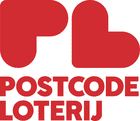July 9, 2025
Asia regional survivors exchange: building solidarity and shaping joint advocacy
To mark the International Day for the Elimination of Sexual Violence in Conflict (19 June), the Mukwege Foundation and the Global Survivors Fund (GSF) co-hosted the first-ever Asian Regional Survivors Exchange in Bangkok. The event brought together survivors of conflict-related sexual violence (CRSV) from four countries across Asia, along with partners and allies.
Survivors of conflict-related sexual violence from Cambodia, Nepal, Timor-Leste and Myanmar meet together for the first time in Bangkok
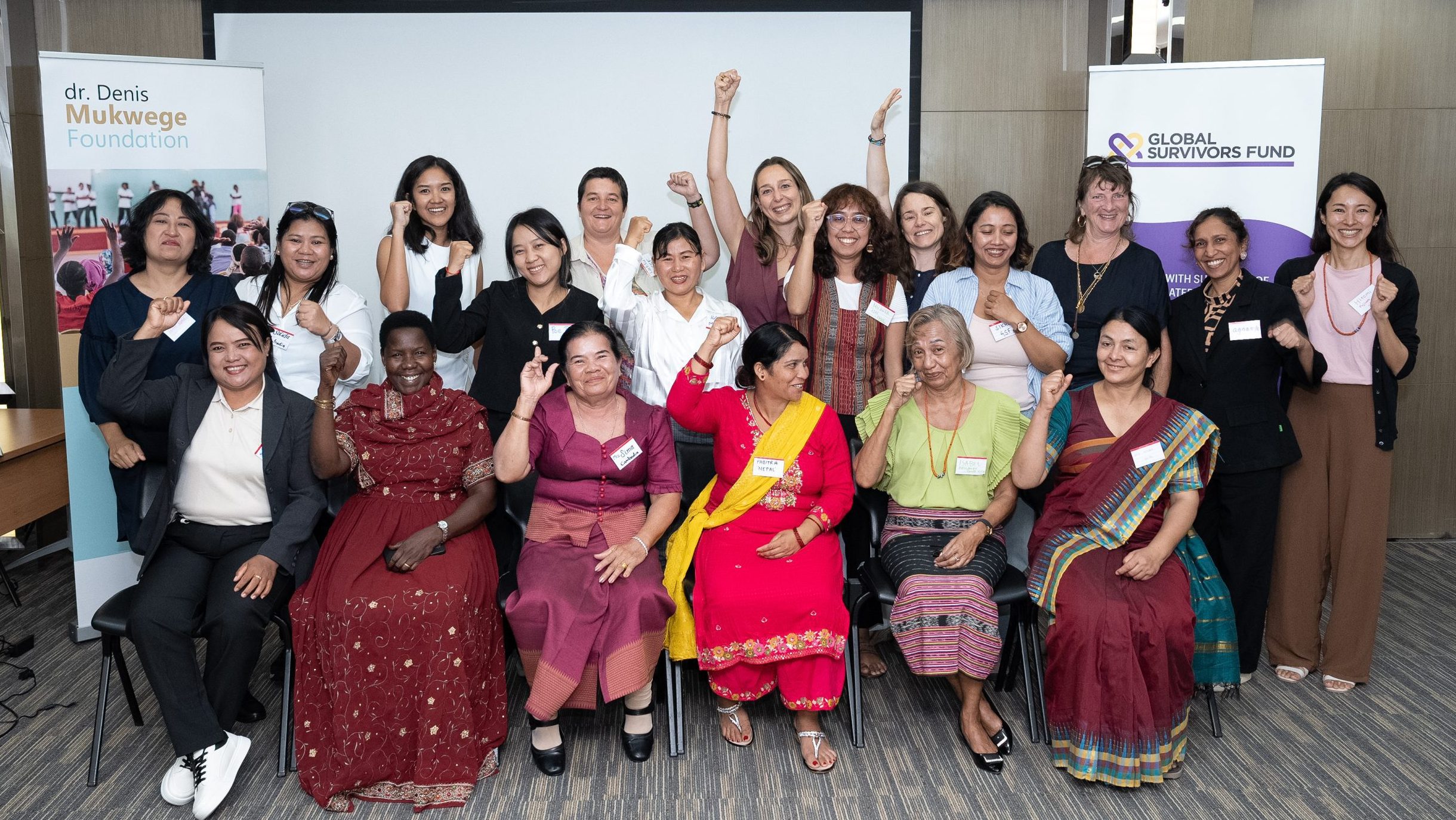
Over two days, survivors and partner organisations from Nepal; Myanmar (living in Bangladesh and Thailand); Timor-Leste; and Cambodia came together to share their experiences, reflect on lessons learned from their work, and explore joint priorities for advocacy.
In a region where survivor-centred approaches and survivor-led movements have been limited, the meeting represented a crucial step towards building regional cooperation and survivor-led action in Asia. It fostered a spirit of mutual support and solidarity among survivors.
The Mukwege Foundation and the Global Survivors Fund believe that when survivors are able to connect with each other across borders, they can draw strength from this solidarity, amplify their voices and more successfully advocate for their rights to holistic care, justice, accountability and reparation.
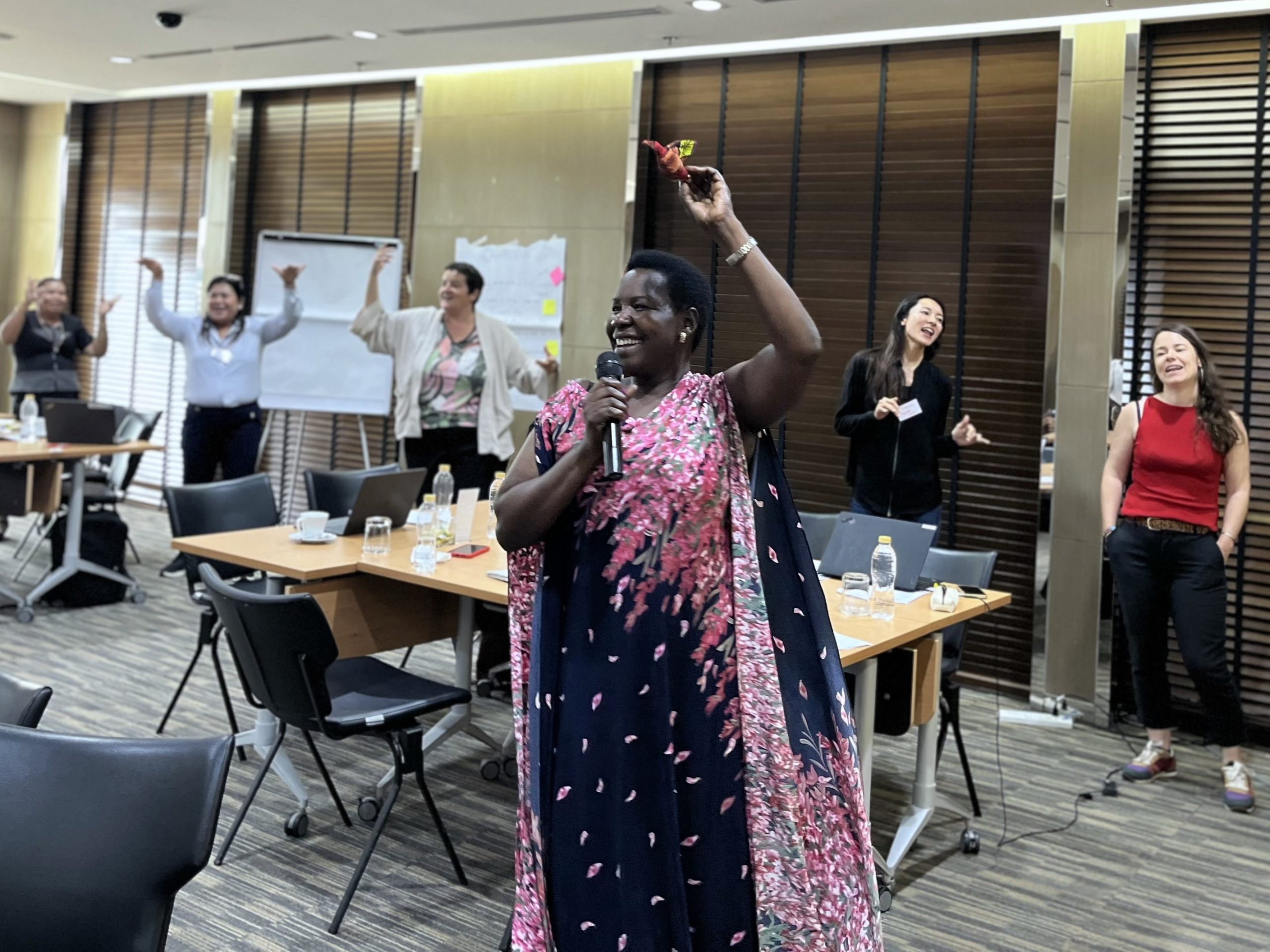
Building on this principle, Sylvia Acan, a founding member of the SEMA Global Network from Uganda, joined the meeting to present SEMA’s work and highlight the importance of survivor-led advocacy. SEMA – the Global Network of Victims and Survivors to End Wartime Sexual Violence – is a network where victims and survivors of conflict-related sexual violence come together from different countries and regions to act in solidarity and advocate for their rights.
“Survivor-led advocacy is not only important — it is essential in the work against conflict-related sexual violence. Community trust is significantly higher when survivor activists are at the centre of programming.” – Sylvia Acan, SEMA member and director of Global Women Vision Uganda.
Sylvia’s participation inspired Asian survivors to consider joining SEMA and demonstrated the impact of survivor-led advocacy initiatives.
Day 1: What happens when survivors lead?
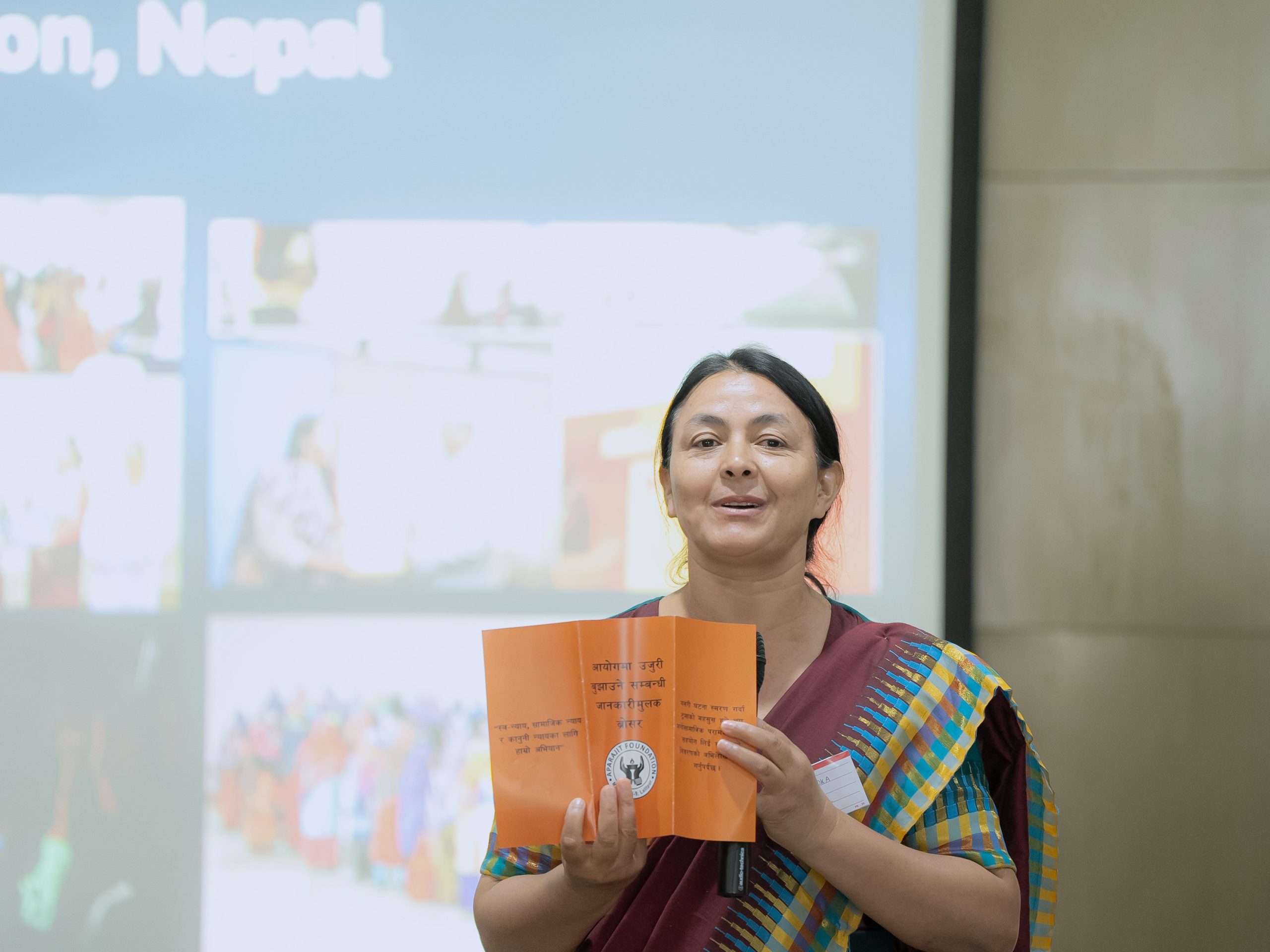
“The first achievement of this project is that we were able to accept ourselves. Earlier, when the incident happened, it was very difficult. I thought I was the only one who was suffering. I hated myself; I could not get out of the room. And now I am able to love myself. I have realised that there are people who have experienced different types of violence, but we are together in this,” shared a survivor from Nepal, describing her experience in the project.
Each participant brought a unique voice and vision shaped by years of activism. Devi Khadka, founder of Nepal’s Aparajit Foundation, shared how their movement began with one voice and grew into a network of over 1,000 survivors committed to survivor-led change under the slogan: “Let’s speak and fight for ourselves, together.”
In 2023, they established the Aparajit Foundation to further a victim-centred transitional justice process that does no harm, following the principles of the Murad Code. Almost two decades after the end of the civil war in Nepal, survivors from the Aparajit Foundation are collecting testimonies from thousands of victims of conflict-related sexual violence to be included in the Nepalese Truth and Reconciliation Commission.
Other survivors also shared their experiences:
- From the Rohingya refugee camps in Cox’s Bazar, members of the Usila survivor network shared how they support one another through peer meetings, mental health sessions and creative expression, with the aim of restoring peace and dignity while living in displacement.
- For the first time, members of Survivors United for Rights and Justice (SURJ), a newly established network of Myanmar survivors living in exile in Mae Sot, Thailand, spoke out about the sexual violence they suffered as political prisoners.
Another survivor from Nepal spoke about the lasting impact of conflict-related sexual violence and her work on supporting other survivors through a survivor-centred approach in GSF’s interim reparative measures project.
- A representative of the Karenni National Women’s Organisation (KNWO) in Mae Hong Son, Thailand, highlighted the vital role of mobile safe houses for refugee survivors from Myanmar, legal support and women-led documentation initiatives.
- The leader of the Pirilampu Network in Timor-Leste shared how the network, supported by Asia Justice and Rights (AJAR) and Asosiasaun Chega! Ba Ita (ACBIT), emerged from shared pain and solidarity, offering hope to survivors decades after the Indonesian occupation.
- A survivor from Cambodia spoke about GSF’s interim reparative measures project that supports survivors of forced marriage and other forms of sexual violence under the Khmer Rouge regime, and the challenge of reaching elderly survivors often hidden due to stigma.
- Sylvia Acan from Uganda reflected on the work of her network and the collective strength of the SEMA Network.
“With other survivors of conflict-related sexual violence, I can speak without fear, without shame. I can be a voice for the voiceless. I don’t feel alone. SEMA, the Global Survivors’ Network, is a second home to me. This is where I started healing and helped my sisters heal with me,” shared Sylvia Acan.
Later in the day, survivors involved in GSF’s interim reparative measures projects in Timor-Leste, Nepal and Cambodia exchanged experiences, discussed challenges and learned from good practices in other countries.
They highlighted key achievements such as successfully reaching many other survivors in their countries and survivors receiving medical, psychological and financial reparative measures, while also sharing challenges like reluctance among survivors to come forward due to a sense of shame and the lack of state recognition.
Day 2: Reflections from survivors and sharing experiences
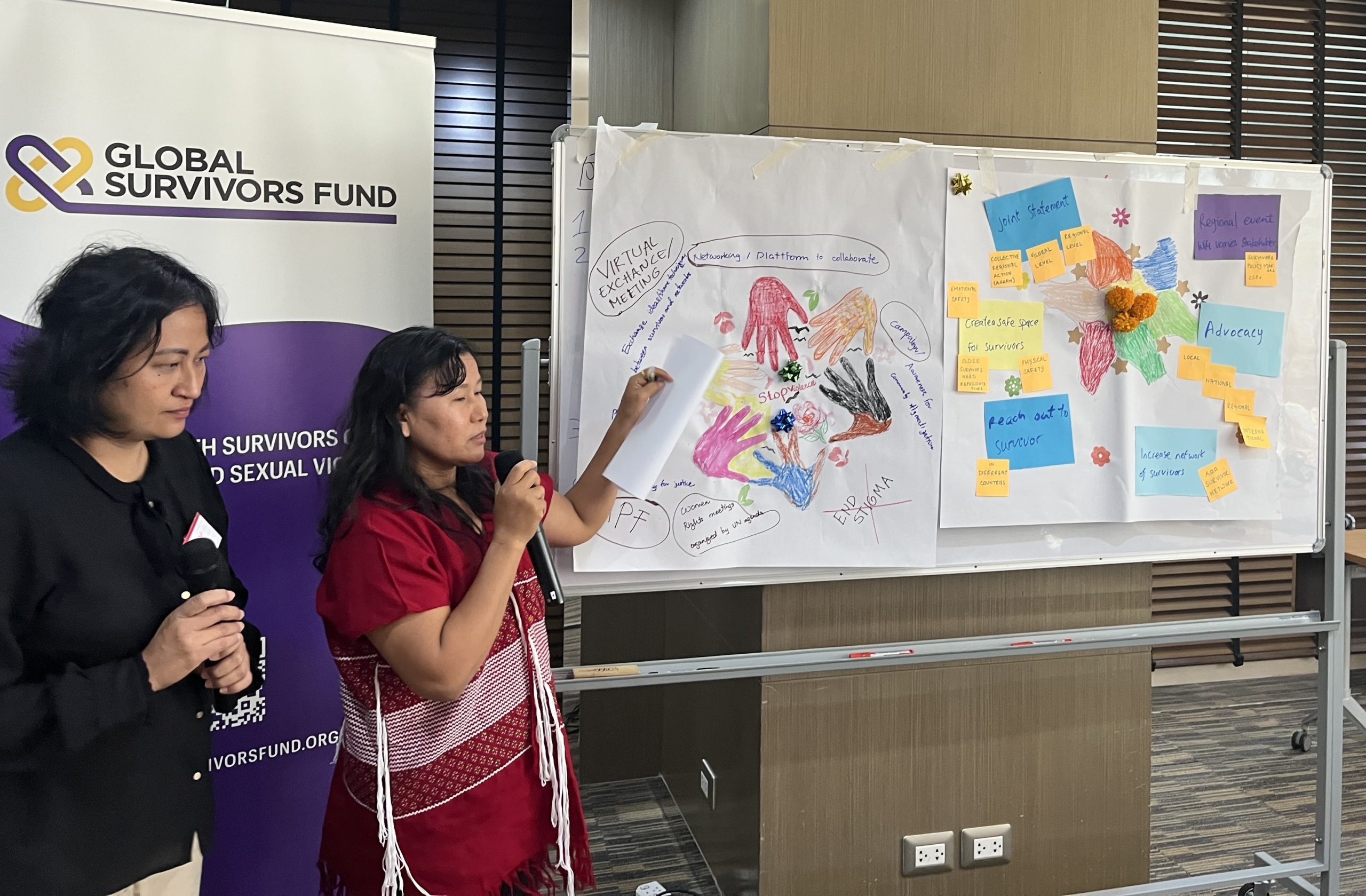
Day two of the exchange focused on understanding common priorities among survivors, presenting the SEMA Global Network and showcasing examples of successful global and national survivor-led advocacy.
Survivors from each country worked in groups to identify the most pressing needs for their communities and how these could be addressed through joint action.
Four common priorities emerged, reflecting shared demands among survivors across borders:
-
Provide safe spaces for survivors to connect, heal, support each other and work together.
-
Facilitate access to holistic support for survivors, including medical, psychological, legal and socio-economic support (such as financial, housing, education and livelihood) through assistance programmes or reparations, as well as emergency support including safe shelters and relocation when relevant.
-
Raise awareness about the causes and consequences of conflict-related sexual violence on survivors in order to combat stigmatisation and ensure their safety.
-
Advocate for accountability and justice, including reparations, at all levels (local, national, regional and international).
Survivors also discussed ways to collaborate across borders to advance these four priorities and agreed to begin by publishing a joint statement outlining their shared demands. The joint statement has since been published and is available here.
Looking ahead: strengthening regional solidarity
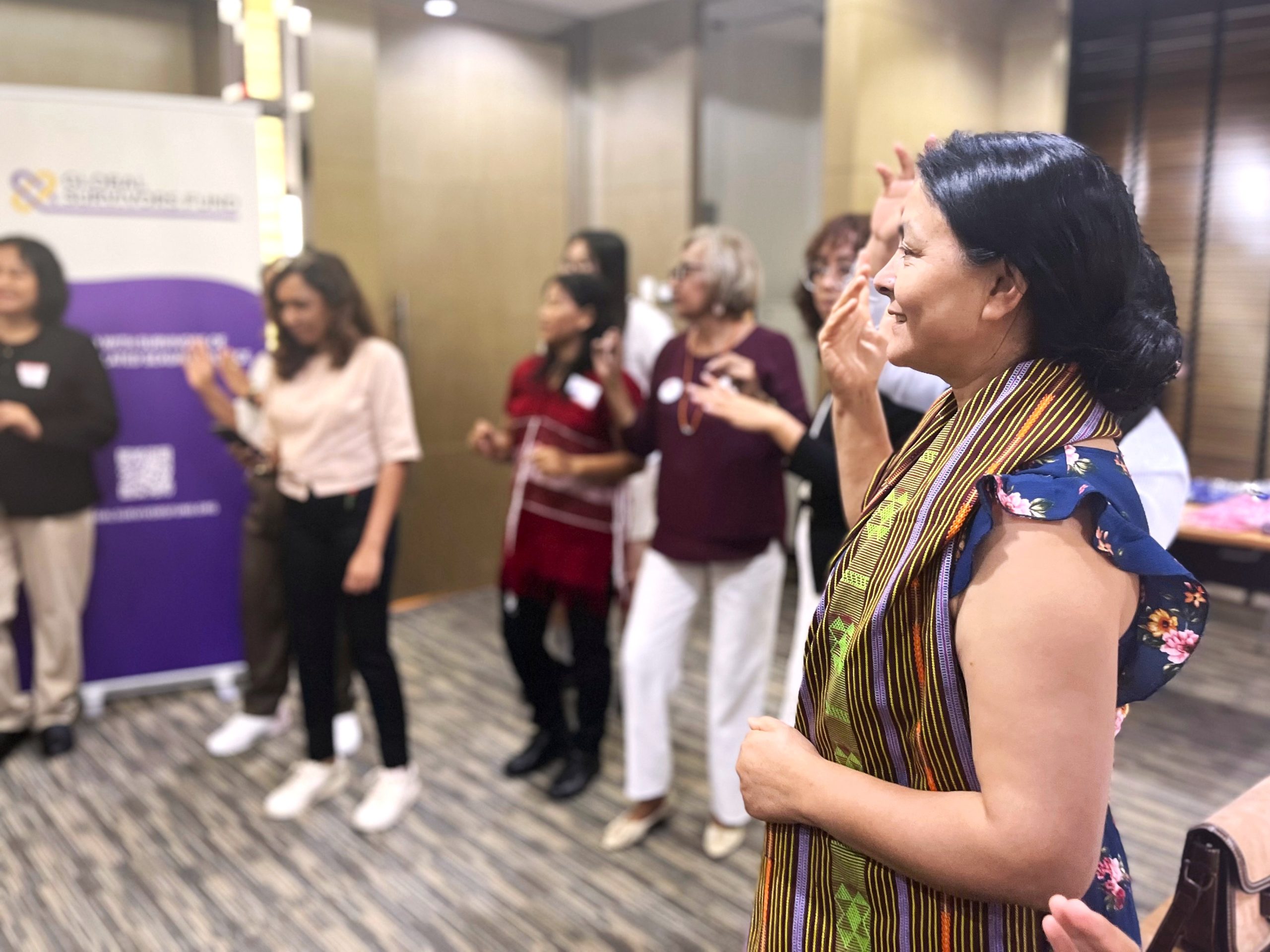
The exchange closed with a powerful performance of the SEMA song ‘Little Bird’ by the survivors and a commitment to stay connected and support each other’s advocacy efforts.
The Mukwege Foundation and the Global Survivors Fund remain committed to supporting survivor-led initiatives in the region — from expanding the SEMA network to co-developing future regional advocacy efforts, and continuing the sharing of experiences and best practices on how to ensure access to justice and truly survivor-centred reparations.






